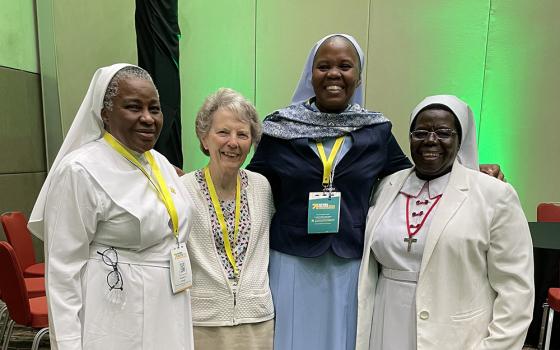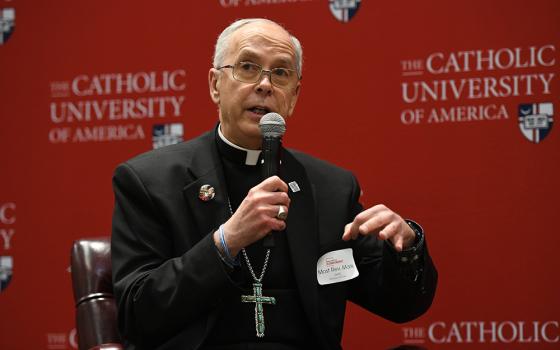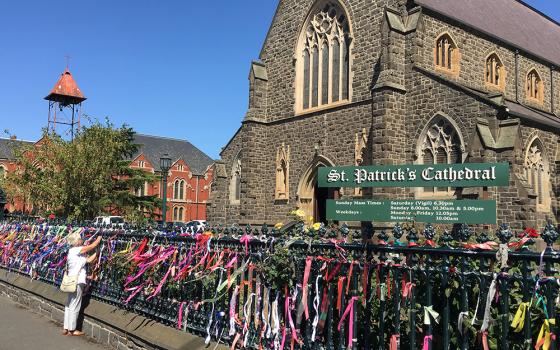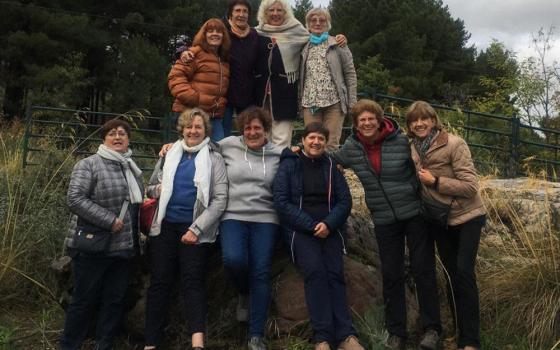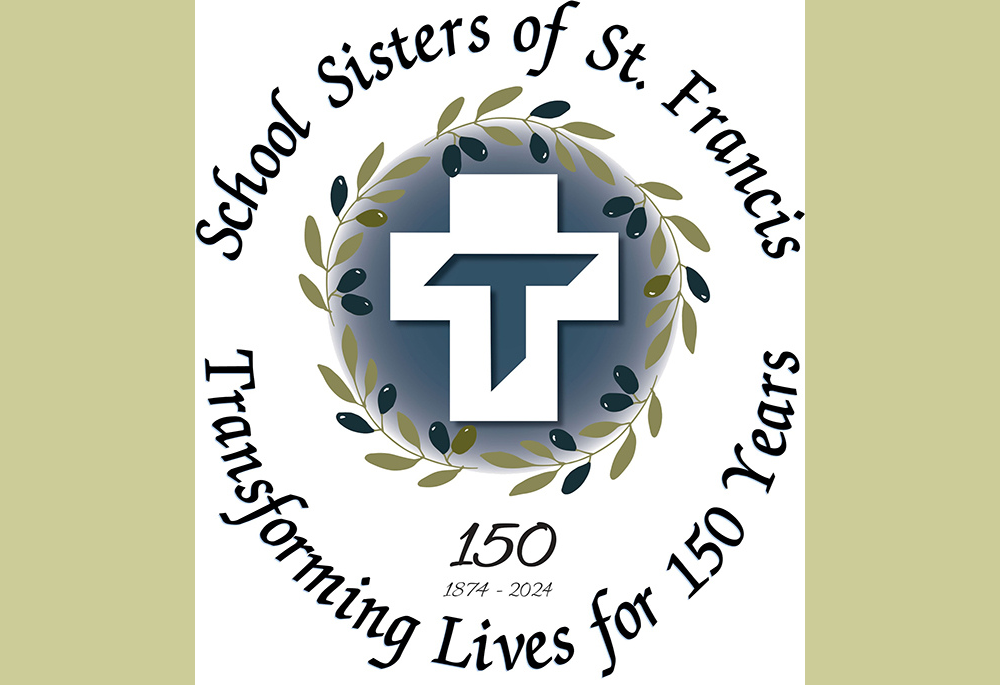
The logo developed for the School Sisters of St. Francis' 150th anniversary. According to the congregation, the logo "incorporates the Franciscan Tau cross encircled by olive branches, which exemplify the Franciscan charism of peace emanating throughout all creation." (Courtesy of Jane Marie Bradish)
Three twentysomething women felt called by God to serve the people in most need. Political persecution prevented them from staying in their homeland. So they each packed a bag and traveled halfway around the world to an unknown place with unknown customs and language and very few contacts.
After attempts in varied places, they found a place to settle down, professed vows and the School Sisters of St. Francis, or SSSF, officially came into being in April 1874. Celebrations have been happening around the world, and the congregation is being recognized by those we have ministered to and with as well.
For the past 150 years, thousands of women around the globe have shared the vision of those initial three and have strived to meet needs of the times around the world. Has it been easy? No. There have been people and political situations which have forced us to "move on."
There was the bishop who decided we should be under his authority; we abandoned (and later sold) our newly built campus and found another place to be. There was the fire that burned our motherhouse to the ground and took the lives of some sisters. World War II forced our German sisters to leave some mission countries. Those are examples from early in our history. The list could go on with more modern examples as well.
Don't be confused by our name. We are a lot more than school sisters. We are doctors and musicians and artists, lawyers and social workers and pastoral ministers, homemakers, retreat directors, administrators, and among so many other ministries, yes — school sisters. We have owned or sponsored schools, orphanages, health care institutions, retreat centers, shelters and homes for displaced peoples. Historically and currently, where there is a need we respond. Unlike what sometimes happened in our early days, we now collaborate with others who may have more experience or have broader outreach.
When I transitioned from initial to ongoing formation, I wrote to our long-deceased foundresses every Sunday morning. It was the first thing I did even before I showered or had breakfast. Sometimes I updated them on the latest in the community and the world, sometimes I asked them questions (my favorite — "What were you thinking?"), and sometimes I shared struggles and successes. Those 20 years of weekly letters kept me in touch with our founding mission. I learned a lot as from week to week, I would encounter responses to my writing, usually through encounters I had or those "lightbulb" moments we all have when things suddenly seem to make sense.

(Unsplash/Jack Carter)
It's 150 years after those three brave, some would say crazy, women "started something," and we're still here. We are still meeting the needs of the times, what we refer to as the will of God. A lot has changed since those early days, but the heart of who the School Sisters of St. Francis are remains the same. In all the best ways, our definition of who we are has expanded to now include members' families, former members, lay associates, partners in mission (aka employees), benefactors, volunteers and others who share our vision and values. Using a somewhat tongue-in-cheek definition of Catholic, we can say the SSSF embody "here comes everyone."
Don't get me wrong, it hasn't been all sunshine and butterflies. I personally know of at least two groups who "broke away." It was ugly and painful, but in recent years the process of reconciliation has been undertaken. Within our community, we don't always see eye to eye or agree, and yes that can result in deep hurts. For some vowed members, their personal response to God's call has resulted in their leaving or being asked to leave the community, also very hard.
Over the last 150 years, a lot has changed. In the United States, where our international headquarters are located, for example, the aspirancy building is now a Jesuit middle school, and our international motherhouse is housing for elderly and families. Other buildings and ministries have shifted from us to other groups who share our mission and values. The same institutional changes are happening everywhere we minister throughout the world. If we are honest, those kinds of changes have been happening since the day we walked away from that bishop.
We look different too. Many have shifted away from the various habits that were worn in our early days into simple secular clothes. We have a community symbol we all wear which makes us easily identifiable (and it is often a great conversation starter). While we were founded by three northern Europeans, the goal was always to have an international community.
Advertisement
In the United States, we are largely white, but globally we are Latina and Indian and African. We are ministering in multiple ways, continuing to meet the needs of the times. The newest ministry we have added is the much-needed ministry of prayer and presence that has been taken up by some of our retired and/or elderly sisters.
What will we look like over the next 150 years? I have no clue, but I do trust and believe we will still exist. Will ministries and institutions continue to shift from us to others and vice versa? Yes. Will locations and configurations shift? Again yes. Will our internal structures change? They already are changing. But to me, none of that really matters. Yes, it's hard to see a ministry or institution we started go to someone else, or worse, go away. But out of those changes, something new comes, and we need to trust that process. I do know we will continue to respond to God's calls.
Our foundresses Alexia, Alfons and Clara taught us "the needs of the times are the will of God." They didn't put time or energy into figuring out what that meant. They simply went with it, and that is what I believe we are to continue.




